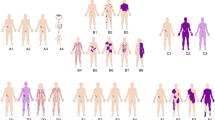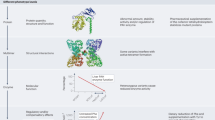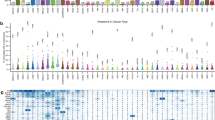Abstract
It is increasingly recognised that recessive mutations play an important role in the pathogenesis of many forms of malignancy. Some of the affected loci may prove to be recessively-activated proto-oncogenes, but others are now known to be tumorigenic solely by virtue of their loss or inactivation and therefore form a distinct and novel family of tumour genes. Preliminary evidence suggests that such genes are likely to be functionally heterogeneous and to encode molecules involved in the inhibition of cellular proliferation and/or the induction of differentiation. Their further study is likely to illuminate fundamental mechanisms of normal cellular growth and differentiation as well as having important implications for the pathogenesis and management of cancer.
This is a preview of subscription content, access via your institution
Access options
Subscribe to this journal
Receive 24 print issues and online access
$259.00 per year
only $10.79 per issue
Buy this article
- Purchase on Springer Link
- Instant access to full article PDF
Prices may be subject to local taxes which are calculated during checkout
Similar content being viewed by others
Author information
Authors and Affiliations
Rights and permissions
About this article
Cite this article
Green, A. Recessive mechanisms of malignancy. Br J Cancer 58, 115–121 (1988). https://doi.org/10.1038/bjc.1988.176
Issue Date:
DOI: https://doi.org/10.1038/bjc.1988.176
This article is cited by
-
Genetic alterations on chromosome 17 in human breast cancer: relationships to clinical features and DNA ploidy
Breast Cancer Research and Treatment (1993)
-
Cytogenetic abnormalities in cancer: with special emphasis on tumor heterogeneity
Cancer and Metastasis Reviews (1990)
-
Preferential mutation of paternally derived RB gene as the initial event in sporadic osteosarcoma
Nature (1989)
-
Adenocarcinoma and carcinoid developing spontaneously in the stomach of mutant strains of Mastomys natalensis
Virchows Archiv A Pathological Anatomy and Histopathology (1989)
-
Gene losses in human tumours
Nature (1988)



